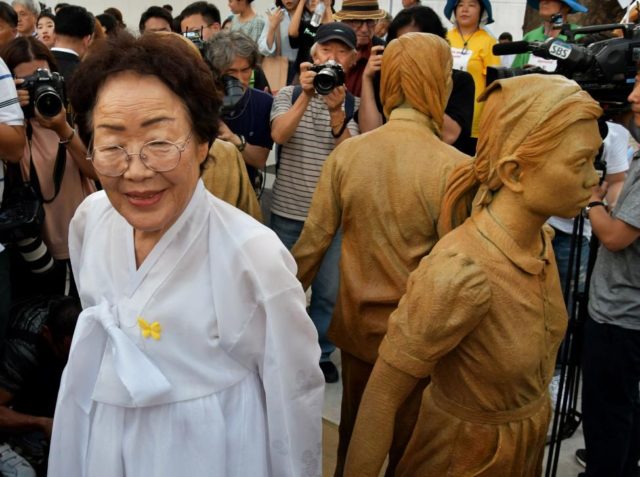May 25 (UPI) — The former South Korean comfort woman who accused an activist of misappropriating funds said Monday she had been “betrayed overnight” after being “used” by lawmaker-elect Yoon Mi-hyang for three decades.
Lee Yong-soo, 91, said Monday at a press conference in the South Korean city of Daegu her relationship with Yoon began in June 1992, Yonhap reported.
Yoon had requested former comfort women who had come forward at the time to gather at a church, where, according to Lee, Yoon distributed about $1,000 in cash to each woman.
According to Lee, Yoon claimed the money was from a retired teacher in Japan. Lee also said she had no idea how Yoon handled cash as Yoon grew her organization, presently known as the Korean Council for Justice and Remembrance for the Issues of Military Sexual Slavery.
Referring to allegations Yoon used comfort women funds collected from the public — including South Korean and Japanese students — to enrich herself, Lee said she had been “living in the dark.”
“Had I known the Japanese had paid 1 billion yen, I would have sent it back,” Lee told reporters, referring to the 2015 formal agreement between Japanese Prime Minister Shinzo Abe and former South Korean President Park Geun-hye. Yoon may have been apprised of the fund while leaving the surviving victims in the dark.
The money was returned following protests from some of the victims.
On Monday, Lee also said Yoon had “committed a crime,” and should be justly punished.
Lauren Richardson, director of studies and lecturer at the Asia-Pacific College of Diplomacy at the Australian National University, told UPI on Monday the Korean Council played a definitive role in the failure of the 2015 accord, which “did not meet its demands.”
“It’s important to note that some of the former ‘comfort women’ are in agreement with the Council’s demands, but some are not,” Richardson said.
The Council rejected offers from Japan on behalf of victims, even when some of the victims were “prepared to settle for less.”
Misappropriation of funds by the Council was also suspected decades ago, when some of the Japanese professors involved in implementing the 1995 Asian Women’s Fund in South Korea complained the money was not reaching the victims, according to Richardson.

COMMENTS
Please let us know if you're having issues with commenting.